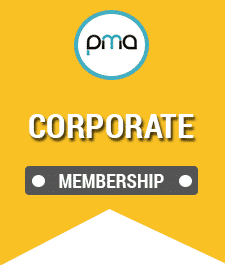If you haven’t come across Simon Sinek, he’s well worth your attention. I first came across Sinek through his YouTube channel and have enjoyed many of his videos. If you’re looking for inspiration, vision, and optimism Sinek won’t disappoint.
Yesterday one of Sinek’s videos popped up on my YouTube homepage and I pressed play. The video is ‘There’s NO Such Thing as “Soft Skills”‘. Check it out below.
In the video, Sinek argues that effective confrontation, empathy, and patience are not soft skills. They are human skills, and they are hard. He believes organizations often overlook their best internal leaders. This is because they don’t place enough value on these crucial interpersonal qualities.
My takeaway
The 5:13 video contains a lot of points that will get you thinking. A couple that stand out for me are:
In business, we have a million metrics to measure someone’s performance. And we have negligible to zero metrics to measure someone’s trustworthiness. And so we accidentally keep promoting toxic team members to become toxic leaders.
We promote people who have high performance and then we expect them to know how to lead, which is nonsense.
Another point that really got me thinking is this:
I’m a big fan of peer reviews. I think that peer reviews are a fantastic way to identify some of the people who really do build great organizations. Who are great leaders inside our teams.
If you want to understand what is happening in any complex system you need to ask questions. Lots of questions. And for sure you need to get feedback from the very people that support the system.
Affiliate surveys
As an affiliate manager, I like to sign up to other company’s affiliate programs and see how they run them. I often find that there is some dialog with affiliates. I rarely find affiliate managers asking their affiliates for feedback, though. This is a mistake. It’s a lost opportunity to improve your program. When an affiliate brings something to you that bothers them it must be investigated!
“Problems in a company are like cockroaches in the kitchen. You will never find just one.” – Warren Buffett
There are a lot of questions that you can ask your affiliates. I would suggest a survey which covers the 5 criteria below.
1. Onboarding.
You need to know how easy it was for affiliates to join your program. Were there any gaps or areas of confusion? It might be that your onboarding process is holding affiliates back from joining your program.
Examples of onboarding questions might include:
- Did the onboarding process adequately prepare you?
- What could there have been more of?
- What could there have been less of?
- What were your biggest challenges when signing up to our affiliate program?
- What were your biggest challenges when setting up a campaign?
2. Commission.
Commission is important. Without an effective compensation package, your program won’t appeal to new affiliates. You also won’t keep existing affiliates motivated.
Examples of commission questions might include:
- Are you satisfied with the current commission rate?
- What motivates you to boost your existing campaigns?
- Were you interested in the bonuses/contests this year?
- Does the current payout schedule meet your expectations?
3. Promotional Materials.
Where and how affiliates promote your brand can quickly change. Social media trends seem to change every few quarters!
It’s vital that you keep your affiliate program up to date with the changes. One of the best ways to do this is by asking your affiliate’s opinion on the materials that you have. You also need to ask about the materials that they need.
Examples of promotional materials questions might include:
- Do you have enough promotional materials?
- Do the existing promotional materials fit with the marketing channels that you use?
- Is it easy to use the existing promotional materials?
- What promotional materials do you need that are not currently available?
4. Communication and Support.
The foundation of the affiliate-advertiser relationship is communication. You need to find a sweet spot. It’s between supporting affiliates so that they can be successful, while not overwhelming their inboxes!
Examples of communication and support questions might include:
- Have you received the support that you needed?
- Do you have enough information about our products/promotions?
- Have you received enough information about our affiliate program?
- Would you like more, the same, or less communication?
5. Performance.
Here you explore how things are going for your affiliates. You are trying to elicit perspective into their overall efforts and performance.
Examples of performance questions might include:
- What worked best for you this year?
- What do you think you’ll need for the coming year?
- What has been your biggest challenge over the past year?
Creating an online survey is pretty straightforward. There are a lot of platforms out there but I would go with either Survey Monkey or Google Forms.
How to send an affiliate survey
Once the survey is set up, it should be sent through your regular affiliate communication channels. This might be email, monthly newsletter, and Facebook/Linkedin Groups.
Low survey turnout can be an issue. If so, consider using an incentive, like a gift card or cash payment, to increase response rates.
What’s next?
As soon as your survey results come in, it’s time to analyze and take action!
Look at trends to see what is more important to your affiliates. If you receive a lot of in-depth answers about marketing materials but not so many about onboarding, focus more on that.
Positive feedback should be the inspiration to continue good practices. If you receive praise for your communication, ensure current standards are upheld.
Finally, you should show affiliates how their feedback has helped. Make it clear what changes have come from the feedback. (I would do this in your monthly newsletter).
Do you run affiliate surveys? If so, what questions have generated the most actionable feedback? I’d be very curious to know what has worked for other affiliate managers.
Check out more ‘Revelations’ here.
Quote of The Week
“If you really look closely, most overnight successes took a long time.”― Steve Jobs





Leave a Reply
Want to join the discussion?Feel free to contribute!